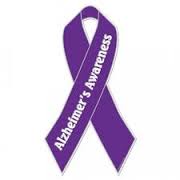Uncovering the Truth about Alzheimer’s
While it is common knowledge that Alzheimer’s disease robs people of their ability to remember, other truths about the disease are less well known.
June is Alzheimer’s and Brain Awareness Month, and the Alzheimer’s Association is conducting a national campaign to reveal truths and debunk myths about the disease.
While it is common knowledge that Alzheimer’s disease robs people of their ability to remember, other truths about the disease are less well known. For instance, many people are unaware that Alzheimer’s is a fatal disease, its symptoms extend further than memory loss and that early diagnosis matters.
“Everyone who has a brain is at risk of developing Alzheimer’s. Misunderstanding crucial facts about the disease can have devastating consequences for people living with Alzheimer’s and their caregivers, families and friends,” said Ruth Drew, Director of Family and Information Services, Alzheimer’s Association. “During Alzheimer’s & Brain Awareness Month, we are debunking the harmful misconceptions that keep people from seeking an Alzheimer’s diagnosis and reduce access to needed resources, clinical trials and support services.”
Greater understanding is urgently needed given the dramatic impact of the disease. Alzheimer's disease is the sixth-leading cause of death in the United States and the only cause of death among the top 10 that cannot be prevented, cured or even slowed.
To improve the public’s understanding of the disease and to underscore the need for swift action, the Alzheimer’s Association is highlighting essential truths aimed at curbing common misconceptions about Alzheimer’s. These truths include:
- Alzheimer’s disease is fatal – there are no survivors. From 2000-2013, the number of Alzheimer’s deaths increased 71 percent, while deaths from other major diseases decreased. More than 5 million Americans are living with Alzheimer’s disease, and by 2050 that number is projected to reach as many as 16 million.
- Alzheimer’s disease is not normal aging. Alzheimer’s is a fatal and progressive disease that attacks the brain, killing nerve cells and tissue, affecting an individual’s ability to remember, think and plan. Brain changes associated with Alzheimer’s may begin 20 or more years before symptoms appear. Although age is the greatest known risk factor, Alzheimer’s is not a normal part of aging.
- Alzheimer’s is more than memory loss. Many believe the disease only manifests itself through memory loss, when it may appear through a variety of signs and symptoms. However, since Alzheimer's affects people in different ways, each person will experience symptoms and progress through the stages of Alzheimer’s differently. Experts from the Alzheimer’s Association have developed 10 key warning signs of Alzheimer’s disease that everyone should learn to recognize in themselves and others.
- Alzheimer’s risks are higher among women, African-Americans and Hispanics. African-Americans are about twice as likely as whites to have Alzheimer’s or another dementia. Hispanics are about one and one- half times as likely. Additionally, more than two-thirds of Americans with Alzheimer’s disease are women.
- Early detection matters. More than 5 million people are living with Alzheimer’s disease, but only about half have been diagnosed. Additionally, less than half (45 percent) of seniors diagnosed with Alzheimer’s disease or their caregivers are aware of the diagnosis. Diagnosis is often delayed due to low public awareness of the early signs of Alzheimer’s and general misperceptions about Alzheimer’s and other dementias.
- “Early diagnosis allows better access to quality medical care and support services, and provides the opportunity for people with Alzheimer’s disease to participate in decisions about their care, including providing informed consent for current and future plans,” Drew said. “Knowing the diagnosis early enables the person with Alzheimer’s to get the maximum benefit from available treatments, and may also increase chances of participating in clinical drug trials that help advance research.”
- Alzheimer’s cannot be prevented, but adopting healthy habits can reduce your risk of cognitive decline and contribute to brain health. Staying mentally active, engaging in regular physical activity and eating a healthy diet benefits your body and your brain. There is also some evidence people may benefit from staying socially engaged with friends, family and the community. The Alzheimer’s Association is sharing steps to reduce your risk of cognitive decline with 10 Ways to Love Your Brain.
- Alzheimer's is the most expensive disease in the country. Alzheimer's disease remains one of the most critical public health issues in America, costing taxpayers $18.3 million each hour. The total national cost of caring for those with Alzheimer’s and other dementias is estimated at $236 billion a year, of which $160 billion is the cost to Medicare and Medicaid alone. As the number of Americans with Alzheimer’s grows, the total annual payments for health care, long-term care and hospice care for people with Alzheimer’s and other dementias are projected to increase to more than $1 trillion in 2050.
- Caregiving can become anyone’s reality. “The enormity of the Alzheimer’s crisis is felt not only by the more than five million people in the United States living with the disease today, but also by their more than 15 million caregivers, friends and family,” Drew said. According to the 2016 Alzheimer’s Association Alzheimer’s Disease Facts and Figures report, it is estimated that 250,000 children and young adults between ages eight and 18 provide help to someone with Alzheimer’s disease or another dementia. In addition, 23 percent of Alzheimer’s disease and dementia caregivers are “sandwich generation” caregivers— meaning that they care not only for an aging parent, but also for underage children.
The Alzheimer’s Association works with caregivers to enhance care and support for all those affected by Alzheimer’s and other dementias. Comprehensive online resources and information are available through the Association’s website at alz.org and the 24/7 Helpline at 800-272-3900. The Association provides assistance to more than 310,000 callers each year, offering translation services in more than 200 languages.
